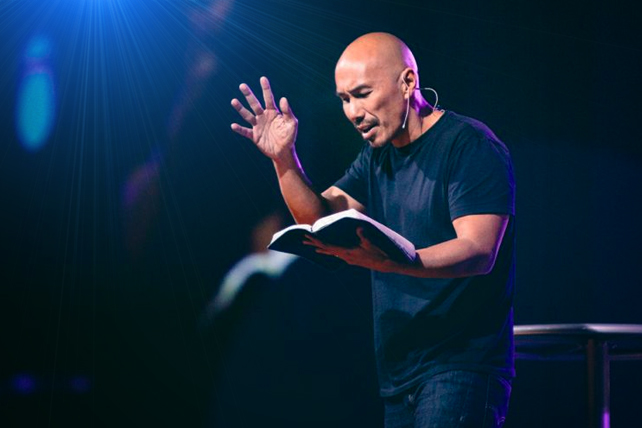
When they were few in number,
of little account, and sojourners in it,
wandering from nation to nation,
from one kingdom to another people,
he allowed no one to oppress them;
he rebuked kings on their account,
saying, “Touch not my anointed ones,
do my prophets no harm!” (Psalm 105:12-15)
God gave clear instructions not to touch those especially anointed by the Holy Spirit to deliver the Word of God. David lived by this command, telling Abishai, “Do not destroy him, for who can put out his hand against the LORD’s anointed and be guiltless? (1 Samuel 26:9). Of course, if someone is a false prophet, the people were commanded to stone them to death (Deuteronomy 18:15-22). The test of a true prophet was inerrancy; if what the prophet claimed came to pass, they were to be respected but if not, they were to be disregarded and put to death.
Unfortunately, many false prophets and false teachers today (and many true teachers who engage in category errors or have poor exegesis) apply this verse to any who dare criticize them. Not even Paul considered Peter above criticism (Galatians 2:11), and did not find that Peter’s status as a hand-selected Apostle to make him immune to correction. If the Holy Apostles weren’t applying Psalm 105:12-15 to themselves, it is doubtful that today’s celebrity evangelists should claim the special status of critical immunity. And unfortunately, that’s precisely what Francis Chan has done.
Chan started well, being educated at Master’s Seminary and gaining fame for being a stalwart teacher of God’s Word. But because Chan did not embrace Cessationism, his Charismatic Window was wide open and day by day, Chan became increasingly unreliable as a Bible teacher. Soon linking arms with the bottom of the Charismatic barrel, Chan started partnering with NAR apostles like Mike Bickel of the International House of Prayer (link). He became increasingly driven by a seeker-friendly and numbers-focused methodology (link). Chan began to partner with Mormons to promote Dominionist ideology (link). Continuationism (the belief that the Apostolic sign gifts have continued to this day) has done to Chan what it has done or will do to every Charismatic eventually; strip their discernment, ruin their teaching, and taint their testimony.
Chan has avoided receiving much of the criticism that’s been given him by those in more sound theological circles by avoiding social media, as he told Charisma Magazine. In an interview with the flagship charismatic publication, Chan lamented discernment among the godly and made an intentional decision to avoid hearing it. He told Charisma Magazine:
There are times to speak strongly. But let’s remember the story of David with Saul. Where’s that spirit in the church today? I just want to be careful with the Lord’s anointed. We’re surrounded by a culture that tries to reserve the strongest words to bash leadership.
Chan explained that the church is too critical today:
We live in a time when people are quick to criticize church and leadership, with this assumption that they know better. It’s just a very, very difficult time for Christian leaders to lead.
Chan left his church, Cornerstone Community Church, claiming that the Spirit was leading him off on what has been described as a “magical faith journey.” That magical faith journey has amounted to speaking engagements in mostly charismatic circles on the evangelical lecture circuit. Indeed, it’s a hard time for church leaders…and even a harder time for the church.










